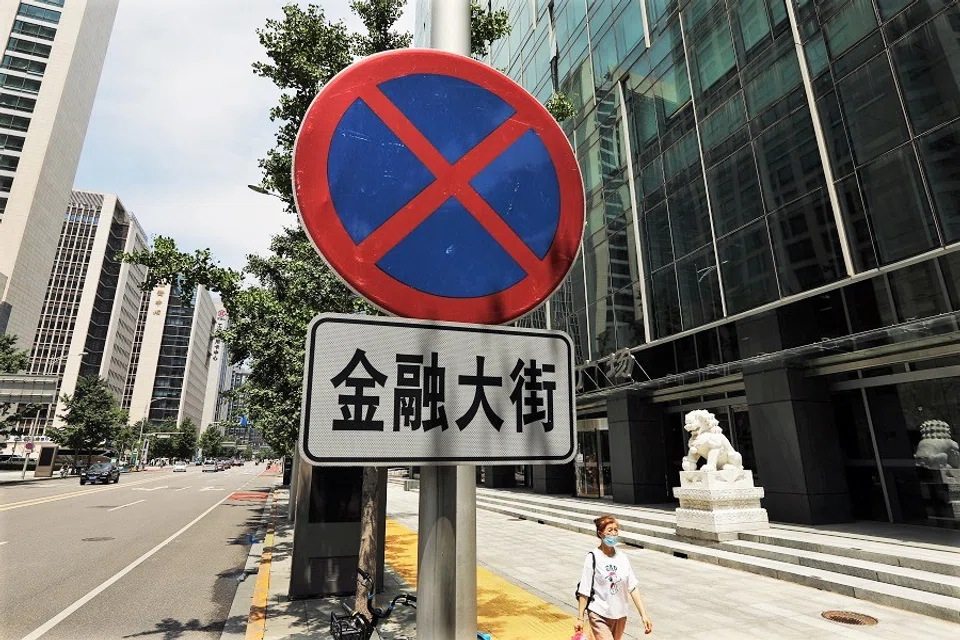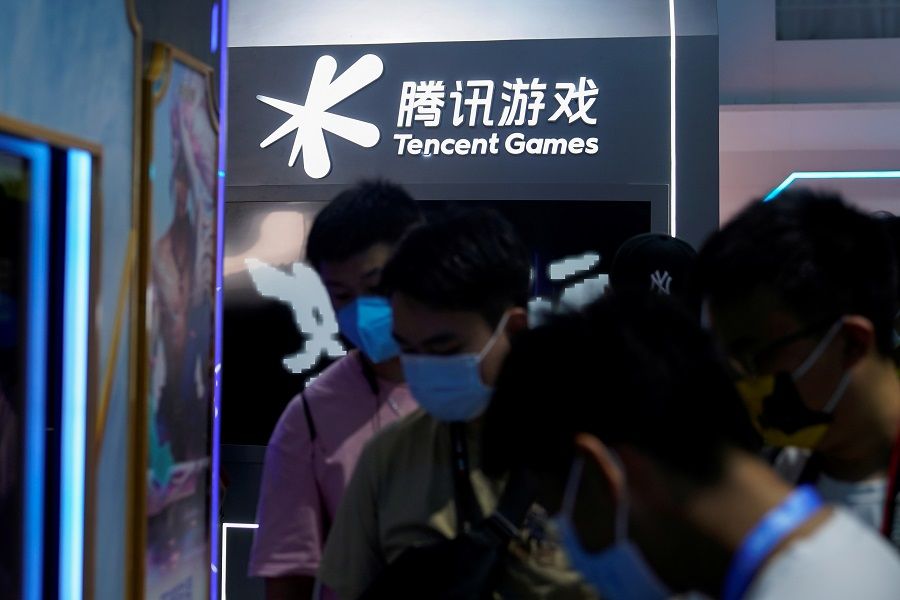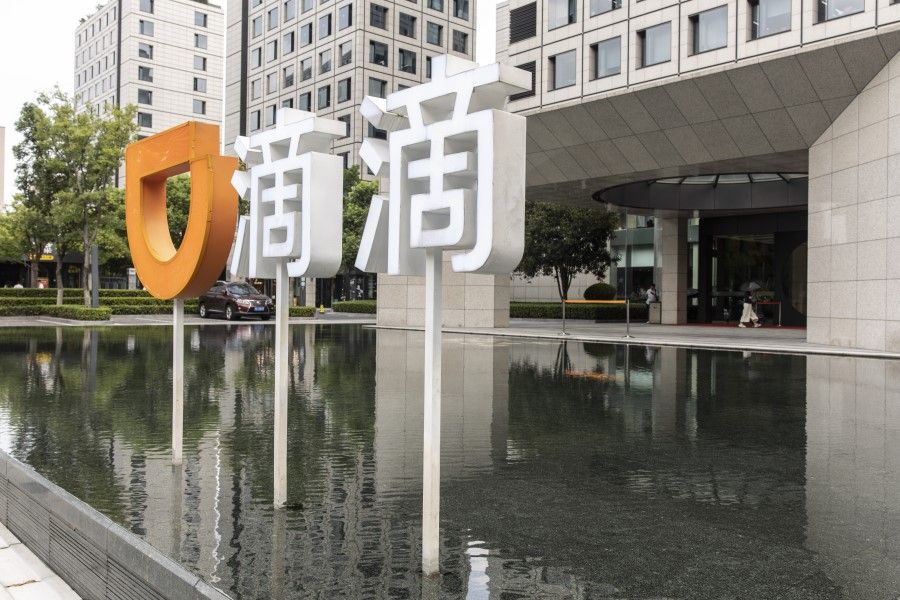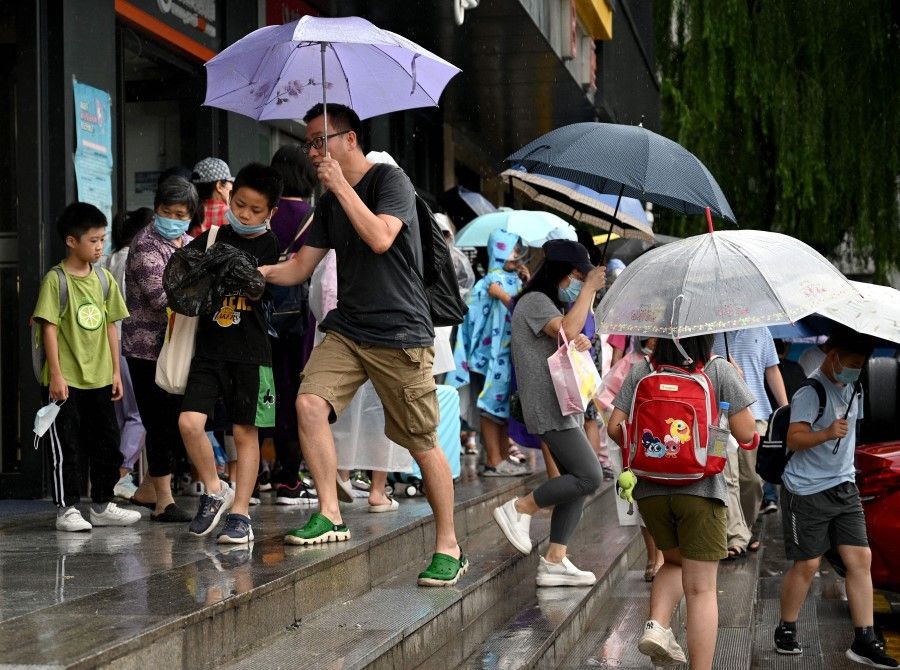Why China is cracking down on big capital

Economic Information Daily, a Chinese state media publication under Xinhua News Agency, ran an article on 3 August asserting that online games are "spiritual opium" and a new form of "electronic drugs". It added that this vice has spawned an industry worth hundreds of billions and even singled out the game Honor of Kings by Tencent. The article sent shock waves through the Chinese online gaming industry and the stocks of Chinese online gaming companies plunging.
The share price of Hong Kong-listed Tencent dived as much as 11% that morning, while that of companies with a smaller market share such as NetEase and Bilibili plunged even more. The strange thing is that the article was removed from the Economic Information Daily website four hours later, and Tencent shares ended down 6.1% after recovering some lost ground.
Based on rough estimates by some media outlets, the article wiped out nearly $300 billion RMB (S$62.7 billion) of the total market value of online gaming companies' H-shares and A-shares (on the Hong Kong and Shanghai/Shenzhen exchanges respectively) that day. It is indeed a very "costly" article.

The "spiritual opium" article was restored later that evening with a different headline. Harsh words like "spiritual opium" and "electronic drugs" were removed. Analysts say that the central government could have been worried that the article would hit the stock market too hard, and thus ordered it removed. However, a quick search would reveal that the "spiritual opium" article is not gone from the Chinese internet and can still be found on other portals. This makes it probable that the higher-ups were not the ones who had ordered the complete removal of the article from the internet. Perhaps Economic Information Daily or Xinhua was pressured by related parties or became aware that the timing was too sensitive and took actions of their own.
Clampdowns an assertion of power
Some were quick to defend online games. Huang Yimeng, CEO of online game platform XD Inc, published an article on Zhihu refuting the use of the term "spiritual opium". He described it as a destructive phrase that was highly insulting. Furthermore, it was humiliating to industry workers who toil at producing one of the country's key cultural exports. The official Weibo account of China News also said that it was unethical to shift the responsibility entirely to the school, the game manufacturer or the guardian of the child, demonstrating the open debate between supporters of online games and its opponents.
Pro-Beijing Hong Kong media Sing Tao Daily published an article yesterday saying that the originator of the "spiritual opium" article was the Economic Information Daily's deputy editor-in-chief Wang Hengtao. The fact that the article was restored after some amendments implies that the regulatory supervision of the gaming industry has become an imperative.
In fact, this is not the first time that state media has attacked online games. The use of phrases like "spiritual opium" and "electronic drugs" is not uncommon as well. It is just that the Economic Information Daily may not have realised that China's capital market is already rattled by rounds of heavy-handed "rectifications" ordered by the government since the start of the year, and a report or a criticism from state media is enough to send investors scuttling away.

All of a sudden, gloom has replaced the overflowing confidence of China's tech companies and industries with high capital involvement. Following the abrupt halt of Ant Group's listing in November last year, on 11 December 2020, the CCP's Politburo proposed ramping up anti-monopoly efforts and preventing the "disorderly expansion of capital" in planning this year's economic efforts. Many people predicted that tech companies and platform companies would be put in order. Now, they are realising that their imagination fell short - putting the high-profile Jack Ma and e-tailers aside, online tutoring institutions, companies getting listed in the US, and the off-campus tutoring industry were all targets in the effort to curb the disorderly expansion of capital.
In early July, Didi Chuxing - which allegedly jumped the gun in getting listed in the US - found itself the subject of a cybersecurity investigation by the regulatory authorities. And in late July, the "double reduction" policy on cutting students' homework and off-campus tutoring was a drastic move on the off-campus tutoring industry, which has seen huge capital involvement in recent years. With one order, the authorities ruled that academic-based tutoring institutions must all be registered as non-profit organisations. To put it simply, they are not to operate for profit, and capitalistic operations are not allowed; they cannot get listed, and foreign capital cannot enter the sector.
...the all-powerful strikes by the authorities also show China's style of governance. First, the revolutionary party characteristic of the ruling body. It constantly initiates various movements and finds new targets to cement its strength and maintain revolutionary fervour.

Socialism's old foe
All of this gives the impression that this is not just a problem with internet companies or students' educational burden, but that socialism with Chinese characteristics holds a natural wariness against capital.
It has to be pointed out that in terms of fairness and efficacy, it is reasonable and necessary to prevent the disorderly expansion of capital. First, monopolistic companies would indeed hurt market competitiveness. And companies that are propped up by huge capital are not seeking financial returns in their initial operations, but want to gain a monopoly on the market - that is, they stake a claim to their territory by figuratively burning money.
And when a closed ecosystem with information asymmetry is formed, instead of demand and supply determining resource distribution, operators in possession of huge data and the ability to set undisclosed profiteering formulas, can then milk users as they wish.
On the other hand, the all-powerful strikes by the authorities also show China's style of governance. First, the revolutionary party characteristic of the ruling body. It constantly initiates various movements and finds new targets to cement its strength and maintain revolutionary fervour. After clamping down on corruption, there was anti-vice, and then curbing the disorderly spread of capital.

Second, under the system of socialism with Chinese characteristics, China wants to fully use capital and market systems to stimulate and raise productivity, but it will not allow capital a chance to become another source of power. Once it finds that happening, it will bring to bear the power of the state to restrain and regulate it.
It is the nature of capital to be profit-oriented. If there is insufficient appropriate regulation, there will be trouble. However, overregulation will also hurt economic vibrance. This regulatory wave in China will probably last for some while, but the authorities will also time it to prevent rocking the market too much.
At the same time, capital sees once again that China is still a socialist country, and their position in China is subject to the will and authority of the state - it will not be equal, and will not be allowed to pose a challenge.
Related: Ride-hailing giant Didi slapped with Chinese cybersecurity review days after IPO | Why is Beijing punishing Didi? | What the Chinese government wants to tell Alibaba and China's tech giants [Part II] | China's tightening fintech regulations may benefit Ma Yun's Ant in the long term | China to impose strict measures on tuition centres to allay anxiety over education | A Chinese education: Why are Chinese parents and kids going to extremes?
